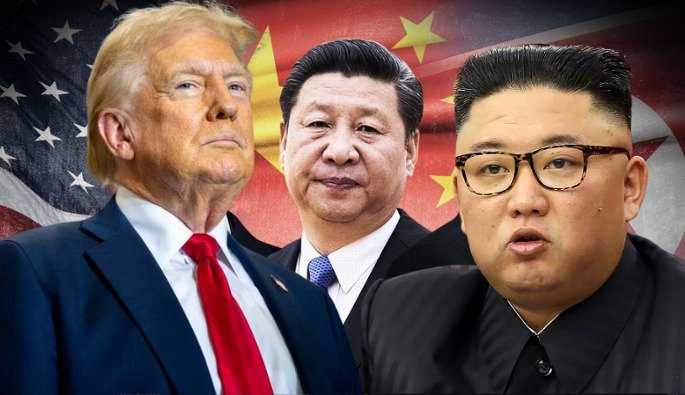Is the U.S. Military Strike in Iran a Warning Signal to China and North Korea from President Donald Trump?
WhilePresident Donald Trump had promised during his 2024 election campaign to keep the United States out of foreign wars, the reality has turned out quite differently.
Is the U.S. Military Strike in Iran a Warning Signal to China and North Korea from President Donald Trump?
Is the U.S. Military Strike in Iran a Warning Signal to China and North Korea from President Donald Trump?
Washington, July 4, 2025 — WhilePresident Donald Trump had promised during his 2024 election campaign to keep the United States out of foreign wars, the reality has turned out quite differently. In showing support for Israel, he authorized U.S. military action against Iran’s nuclear facilities—an operation that reverberated not only across the Middle East but also sent strong signals to China, North Korea, and Russia.
The strike involved the use of B-2 stealth bombers deploying “bunker buster” bombs and Tomahawk cruise missiles launched from submarines, targeting three critical Iranian nuclear sites. Although Iran and Israel reached a ceasefire just two days after the attack, analysts argue that Trump's move was a calculated strategic message aimed at countries in the Asia-Pacific region.
Message to China and North Korea: “No Fear in Using Force”
Duyeon Kim, an analyst at South Korea’s Center for a New American Security, stated:
“With this strike, Trump has demonstrated that he is not afraid to use military power. It sends a strong signal to North Korea, China, and even Russia.”
According to Kim, Trump's behavior in this term is significantly more aggressive and risk-prone than in his previous presidency—something that could alter strategic calculations among U.S. rivals in East Asia.
Reactions from Russia, China, and North Korea
Russia: President Vladimir Putin condemned the strike as a “provocative act of aggression.”
China: The Foreign Ministry declared it a violation of international law and an escalation of regional tensions.
North Korea: Pyongyang labeled it a “blatant violation of the sovereignty and security of an independent nation.”
“Strike During Negotiations” Raises Trust Issues
Experts note that Trump launched the strike while diplomatic discussions were still ongoing—a move that could damage the credibility of future U.S. negotiations. Hong Min, a researcher at South Korea’s Institute for National Unification, remarked:
“This incident may teach North Korea that being more transparent in talks with Washington could backfire and open the door to military action.”
New Dimension in the Taiwan Conflict
China views the U.S. strike on Iran as a potential template for future action regarding Taiwan. Drew Thompson, a fellow at Singapore-based think tank RSIS, said:
“This operation will make China wonder—if a conflict over Taiwan erupts, would the U.S. consider a direct strike on the Chinese mainland?”
Zhao Minghao, a Chinese international relations expert, warned:
“The U.S. must not miscalculate. If it attempts the same strategy with China, the outcome could be a catastrophic conflict from which the U.S. may not escape unharmed.”
Lower Risk of Striking Nuclear-Armed States
Joseph Dempsey of the International Institute for Strategic Studies explained:
“If Iran had operational nuclear weapons, the U.S. likely would not have carried out this strike.”
This statement underscores the perception that a direct attack on nuclear-armed nations like China or North Korea would be far more dangerous and less likely.










